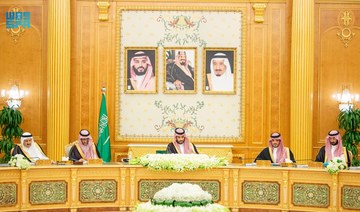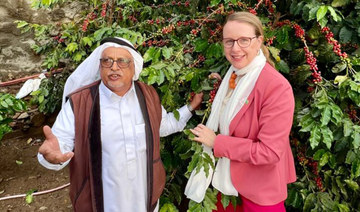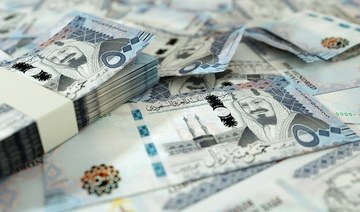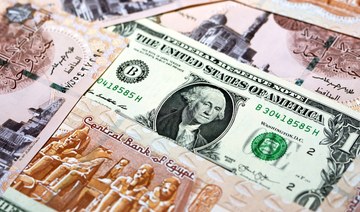LONDON: Negative comments from European Brexit negotiators could trigger a decline in the value of the British currency, analysts warn, as talks between the two sides kicked off on Monday.
The UK Brexit commissioner, David Davis, began the first full round of negotiations with EU chief negotiator Michel Barnier, with the Brussels-based talks set to include issues including citizens’ rights, the ongoing EU budget commitments, and Northern Ireland issues.
Market analysts are watching the Brexit talks closely to see how they could affect their investment decisions. Harry Thompson, a market analyst at PhillipCapital UK, told Arab News that “these next few days will be an eye-opener for future trade negotiations, meaning the extent to which each party is willing to concede on certain areas may be the key driver for sterling.”
Due to the result of the UK election in June, it is possible that the UK government can no longer take a hard-line stance and David Davis’ hand in negotiations has been negatively impacted, Thompson added.
“Should we see evidence that Davis’ hand has truly been dented, we could see (the) sterling rise as the UK looks set to avoid a hard Brexit,” he said.
“For now, both parties may continue to hide behind their poker faces, with a lack of cooperation likely to send sterling lower as investors fear the possibility of a hard Brexit.”
Thompson added that investors would also be keeping a close eye on UK inflation and retail sales data this week. “The recent change in rhetoric from the Bank of England (BoE) has meant sterling has pushed to fresh highs as investors increase their bets on higher rates in the UK. Should CPI this week confirm that inflation remains at four-year highs, we could see sterling climb higher, with Brexit negotiations (taking) a back seat to the eventuality of a near-term rate-hike from the MPC.”
The pound has slumped since the Brexit referendum in June 2016, but predictions of immediate doom have not proved accurate with the UK economy estimated to have grown 1.8 percent in 2016, second only to Germany’s 1.9 percent among the world’s Group of Seven (G-7) leading industrialized nations.
Chris Beauchamp, chief UK market analyst at IG agreed that sterling has gained recent strength, with BoE Gov. Mark Carney “turning his tone on interest being enough to change the market sentiment.”
Beauchamp told Arab News he would be looking out for comments from the European contingent this week: “We would look more to the European spokespeople — they seem to have the upper hand in the conversations. So there is a risk that their comments could negatively affect the sterling,” he said.
As Britain prepares to leave the EU, the government has been eyeing closer relationships and special ties with regions outside Europe. According to Beauchamp, it is the UK’s “lynchpin” strategy to make sure it has international arrangements in place and to give the impression that it is open for business with regions like the US and the six-nation Gulf Cooperation Council (GCC).
In March, it was reported that Gulf Arab states are pressing for an early deal on free trade with Britain to secure preferential arrangements after Brexit, and could have a draft agreement ready within months, Gulf officials say.
One of the first agreements could be with the GCC. Trade between Britain and the GCC totals about £30 billion ($39.1 billion) annually.
GCC states are trying to diversify their economies and boost non-oil trade after more than two years of low global oil prices that have hurt their finances. They export mainly oil, gas and related products to Western economies while importing a wide range of goods and services.
Jason Tuvey, Middle East economist at Capital Economics, told Arab News: “In aggregate, it is unlikely that a weaker pound would have a significant impact on trade with the GCC. Trade ties are relatively small and most exports from the region to the UK are hydrocarbons, demand for which tends to less affected by swings in exchange rates.”
“That said, a weaker pound would make UK goods relatively cheaper and this could support UK industries, particularly defense, which are heavily reliant on demand from the Gulf. When it comes to discussions over trade agreements, the UK government is likely to put the defense industry front and center of talks with the GCC,” Tuvey added.
— With input from Reuters
Negative comments from EU Brexit negotiators ‘could trigger sterling fall’
Negative comments from EU Brexit negotiators ‘could trigger sterling fall’
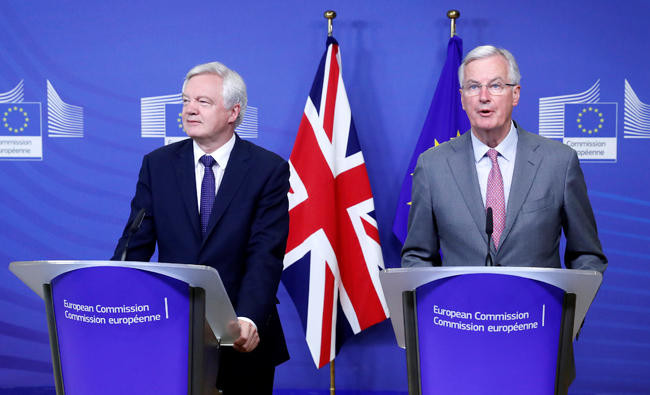
Energy deals with Brazil, Japan, and Jordan signed off by Saudi Cabinet
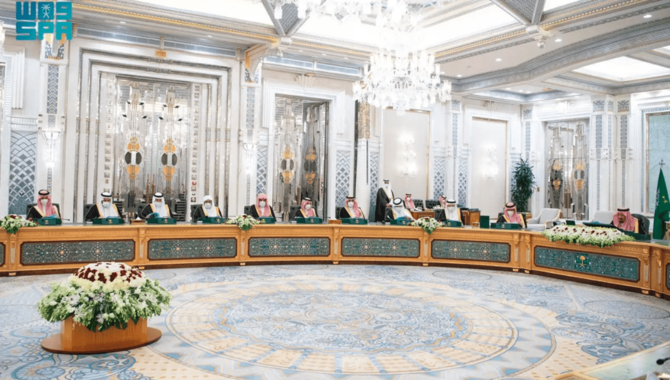
RIYADH: Saudi Arabia has approved economic and energy deals with several countries including Jordan, Brazil, and Japan, during its latest Cabinet meeting.
An agreement between the central banks of the Kingdom and Qatar focusing on cooperation in financing operations was also among the deals endorsed.
The meeting also approved various agreements between the Saudi government and other countries, including Oman, Georgia, and Morocco.
The Council of Ministers discussed updates on the Kingdom’s cooperation with various countries worldwide, focusing on efforts to enhance bilateral and collective work across multiple fields.
Among them were agreements reached between the Kingdom and both Uzbekistan and Azerbaijan in the field of energy.
These accords reflect a commitment to the sustainability and stability of petroleum markets. They also aim to advance cooperation in clean energy sectors, contributing to a globally organized energy transition. Additionally, they seek to build a more sustainable future for the three countries and the world.
In his statement to the Saudi Press Agency following the session, Minister of Media Salman Al-Dosari highlighted the Council’s appreciation for the results of the recent Arab conferences in Riyadh focused on environmental matters.
He added that the Cabinet stressed the Kingdom’s keenness to partner with regional and global entities to bolster agriculture, food security, and water resources, aligning with the country’s sustainable development goals.
During the session, the Council of Ministers cleared various agreements including an energy cooperation deal between Saudi Arabia and Jordan, as well as a memorandum of understanding between the Saudi Ministry of Energy and Brazil’s Ministry of Mines and Energy.
The Cabinet also endorsed two cooperation pacts between the Saudi Ministry of Industry and Mineral Resources and both Morocco’s Ministry of Energy Transition and Sustainable Development, and Japan’s Ministry of Economy, Trade and Industry. These pacts relate to the fields of mineral wealth, mining, and mineral resources.
Moreover, it cleared the Kingdom’s accession to the Geneva Act of the Hague Agreement concerning the international registration of industrial designs.
Additionally, the Cabinet approved the implementation of a decision made by the Gulf Cooperation Council states’ Financial and Economic Cooperation Committee regarding the final draft for exempting industrial inputs from fees. This decision was made during the committee’s 120th meeting, held in October 2023 in the Omani capital, Muscat.
Saudi Coffee Co. receives license to build Kingdom’s first coffee production factory in Jazan
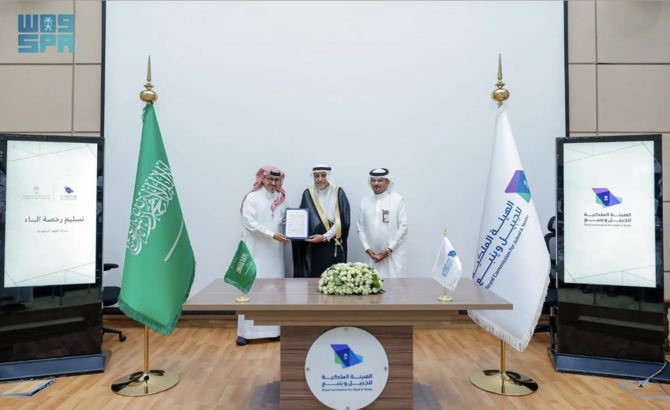
RIYADH: Saudi Coffee Co. has been given approval to begin operations in Jazan, marking the establishment of the first production facility for the product in the Kingdom.
This comes as Khalid bin Mohammed Al-Salem, president of the Royal Commission for Jubail and Yanbu, issued the license to the Public Investment Fund firm, the Saudi Press Agency reported.
The factory, which will be built on an area of 30,000 sq. m, seeks to produce and export Saudi coffee, strengthen local and global supply chains in line with the goals of Vision 2030, and contribute to the sustainability of the sector.
This move came as part of the city’s signing of various investment agreements and capital contracts.
Saudi Coffee Co. signed an investment deal with the Royal Commission for Jubail and Yanbu to construct the warehouse in November 2022.
According to a statement released at the time, the new facility is expected to raise Saudi coffee output from the current 300 tonnes per year to 2,500 tonnes by 2032 while further developing a more sustainable and localized value chain.
Red Sea Global collaborates with Almosafer to elevate tourism sector in Saudi Arabia
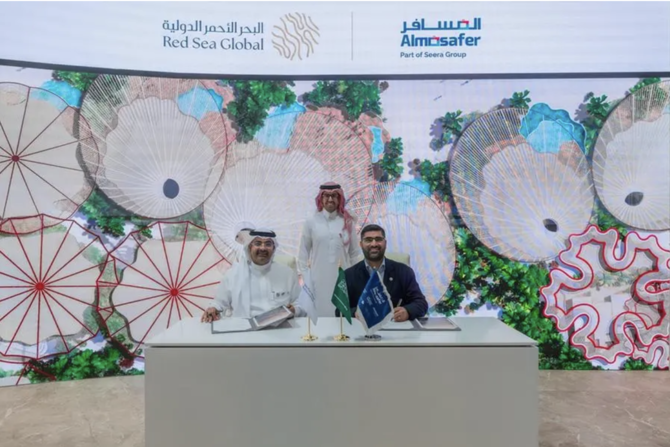
RIYADH: Saudi Arabia’s tourism landscape is set for a boost after multi-project developer Red Sea Global signed an agreement with travel company Almosafer.
According to a statement, the deal will see the firm showcasing and promoting the destination’s tourism developments and offerings.
“With Almosafer’s support, we will help travelers discover just how special this part of the world is, from the pristine coastline and breathtaking coral reefs to the stunning dunescapes and wadis,” said Group CEO of Red Sea Global John Pagano.
He added: “Our growing portfolio is set to unlock the tourism potential of the Red Sea coast for all segments of travel with a diverse range of experiences and offerings.”
Under the deal, both companies will collaborate on targeted marketing and promotion campaigns to raise awareness among travelers, highlighting the offerings in the Red Sea and AMAALA.
Developing the tourism sector is crucial for Saudi Arabia, as the Kingdom is steadily pursuing its economic diversification journey by reducing its dependency on oil.
Saudi Arabia’s National Tourism Strategy aims to attract 150 million visitors to the Kingdom by 2030 and create 1.6 million jobs in the sector.
“The partnership with Red Sea Global reflects our shared vision for redefining luxury travel and shaping the future of luxury tourism in Saudi Arabia. We are excited to leverage our geographical reach and decades of experience to position them as the ultimate destinations that set new standards in bespoke tourism experiences,” said Muzzammil Ahussain, CEO of Almosafer.
With 79 hotels in total, the Red Sea and AMAALA are projected to contribute SR33 billion ($8.79 billion) annually to the Kingdom’s economy upon completion in 2030.
Meanwhile, Red Sea Global also signed another deal with Saudia, the national flag carrier of Saudi Arabia, to streamline the travel experience of employees working with the multi-project developer.
The partnership will enable employees of Red Sea Global and its affiliates to access exclusive upfront discounts and special corporate rates while traveling with Saudia, the Saudi Press Agency reported.
“We are excited to collaborate with Red Sea Global and offer them seamless travel solutions to connect with international partners and talent,” said Saudia chief commercial officer Arved Von Zur Muehlen.
He added: “This partnership reflects Saudia’s unwavering commitment to supporting the Kingdom’s economic objectives and positioning it as a global tourism hub.”
Global ESG sukuk market projected to surpass $50bn thanks to funding diversification
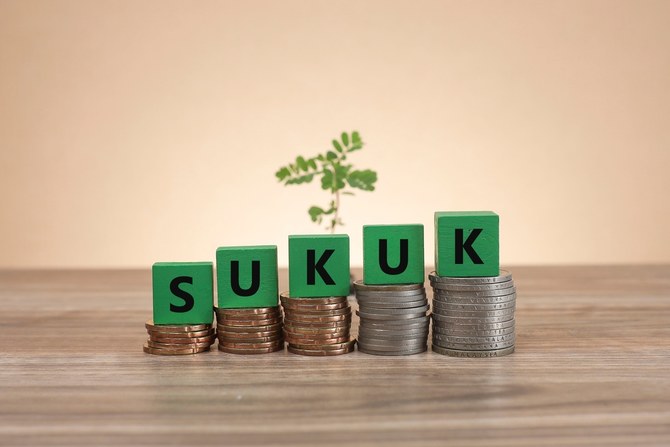
RIYADH: The global sukuk market linked to environmental, social, and governance principles is expected to exceed $50 billion in the next two years driven by funding diversification goals.
According to Fitch Ratings, other factors catalyzing the growth of these Shariah-compliant debt products include new ESG mandates, regulatory frameworks, and government-led sustainability initiatives.
The report highlights that the global ESG sukuk rose by 60.3 percent year-on-year to reach $40 billion outstanding at the end of the first quarter of 2024.
Bashar Al-Natoor, global head of Islamic Finance at Fitch Ratings, said: “Almost 99 percent of all Fitch-rated ESG sukuk are investment-grade. The year started with key regulatory initiatives, which could support standardization, ecosystem development, and aid transparency.”
He added: “There is significant ESG sukuk growth potential, and continuous efforts and increasing confidence will be key to unlocking this.”
The instrument, also known as green sukuk, is a Shariah-compliant financial tool wherein issuers utilize the proceeds solely to finance investments in renewable energy or other environmental assets.
The credit rating agency added that sukuk has a significant share of ESG debt in core markets.
“In the GCC (Gulf Cooperation Council) countries, ESG sukuk reached $15.9 billion outstanding, representing 45 percent of the ESG debt mix, with the balance in bonds,” said Fitch in the report.
However, it added that the market could face challenges from factors like geopolitical tensions, high oil prices, and new Shariah requirements, which might alter sukuk credit risks.
In April, another report from Fitch Ratings indicated that the issuance of this debt product would continue to grow in the remaining months of the year, albeit at a slower pace compared to the first quarter.
The report highlighted that countries in the GCC accounted for 35 percent of the global outstanding sukuk.
Fitch also revealed that the GCC debt capital market has reached $940 billion in outstanding sukuk and is steadily approaching the $1 trillion mark.
In February, it projected that ESG sukuk would exceed 7.5 percent of the global outstanding Islamic bonds in the coming years.
Egypt’s non-oil business shrinks for 41st straight month, PMI shows
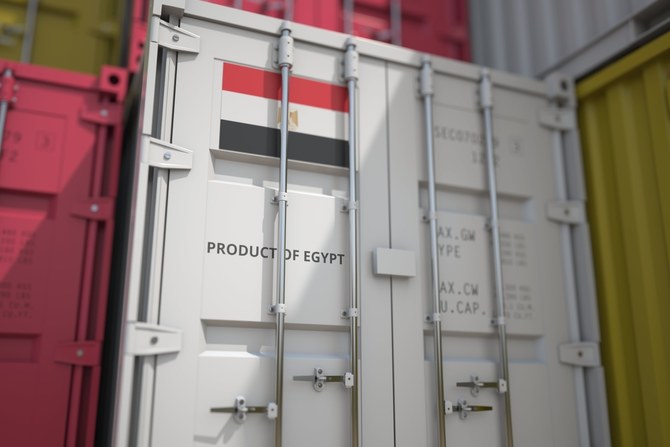
CAIRO: Egypt’s non-oil private sector continued to shrink in April despite a $35 billion investment deal signed with the UAE in February and an $8 billion International Monetary Fund agreement in March, a survey showed on Wednesday.
The S&P Global Purchasing Managers’ Index for Egypt edged down to 47.4 in April from 47.6 in March, remaining below the 50.0 threshold that separates growth from contraction for a 41st consecutive month.
“Business activity once again fell markedly as firms commented on difficult market conditions, with the decline leading to a renewed drop in employment,” S&P Global said.
The employment sub-index slipped to 49.7 in April from 50.8 in March.
Egypt signed an agreement with the IMF on March 6, with an initial $820 million payout received in April and a second, $820 million payout expected after an IMF review in June.
In granting the financial support, the IMF cited shocks to the Egyptian economy from the crisis in neighboring Gaza. Egypt devalued its currency on March 6 and hiked interest rates by 600 basis points as part of the deal.
The output sub-index climbed to 44.8 in April from 44.5 in March and the new orders index improved to 45.5 from 45.0. Business sentiment also improved, with the future output expectations index climbing to 55.3 in April from 52.2 in March.
“Sentiment was at a six-month high, reflecting hopes of exchange rate stability, lower prices and better material availability,” S&P Global said.
Meanwhile, global ratings agency Fitch last week revised Egypt’s outlook to positive from stable.
The agency affirmed Eygpt’s rating at ‘B-,’ citing reduced external financing risks and stronger foreign direct investment.
Foreign investors have poured billions of dollars into Egyptian treasury bills since the country announced the IMF loan program. After the investment in the country’s foreign portfolio and the support from the UAE, Egypt’s net foreign assets deficit shrank by $17.8 billion in March.
Fitch says that initial steps to contain off-budget spending should help to reduce public debt sustainability risks.
The country straddles North Africa and West Asia and has been grappling with an ongoing economic crisis linked to persistent foreign currency shortages. In the fourth quarter, its foreign debt climbed by $3.5 billion to $168.0 billion.
Meanwhile, Moody’s also revised its outlook on Egypt to “positive” in early March while affirming its ratings due to the high government debt ratio and weaker debt affordability compared to its peers.


